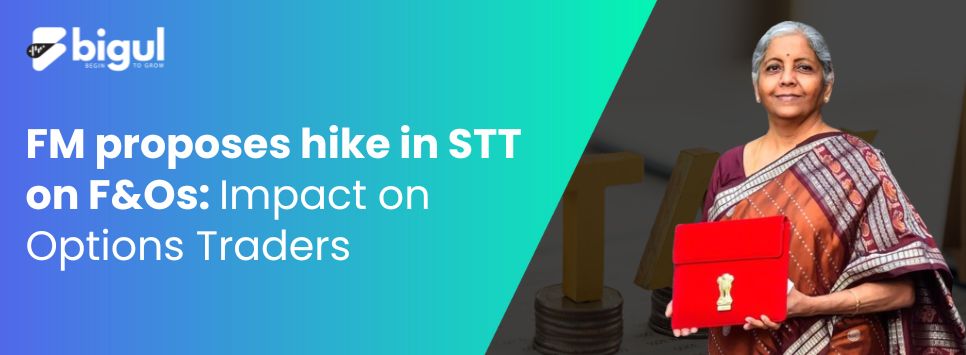Options trading has grown in popularity among Indian investors. It allows investors to profit from market movement in a manner that traditional investment cannot.
In India, options trading is gaining momentum as more investors recognise its potential benefits and take advantage of the growing regulatory framework.
The article will cover options trading bases, the regulatory framework, and how to start trading in India. By the end of this article, you will understand options trading, how it works in India, and how to start trading.
Also Read | What you Need to Know About Option Trading & Strategies
Basics of Options Trading
Options trading lets buyers buy or sell underlying assets at predetermined prices and times. Options provide buyers with the right to buy or sell an asset, while sellers must sell or buy at a certain price and date.
The underlying assets for options trading can include stocks, commodities, currencies, and indices. Options trading is often used for speculative purposes or as a hedging strategy against potential losses in a portfolio.
Types of Options Trading
There are two types of options trading: Call options and Put options.
- Call Options:Call options allow the buyer to buy the underlying asset at the strike price before expiration. Call options are used when investors expect the asset price to rise.
- Put Options: A put option allows the buyer to sell the asset at a fixed price before expiration. Investors use put options when they predict the asset price to fall.
There are also two more types of options trading: American-style options and European-style options.
- American-Style Options:American options can be exercised any time before expiration. This type of option is typically used when an investor wants to lock in profits or mitigate losses.
- European-Style Options: European-style options can only be exercised on the expiration date. This sort of option is used when an investor has a long-term perspective of the market and doesn’t need to execute it until expiration.
Investors must understand options trading kinds to choose the right approach for their financial goals and risk tolerance.
Understanding Options Trading in India
Now that we’ve covered the basics of options trading let’s explore India’s options trading landscape, including SEBI laws and underlying assets.
Regulatory Framework
SEBI regulates all stock market activity in India, including options trading. SEBI regulates and monitors the options market to ensure transparency, integrity, and fairness. It also sets rules and guidelines for options trading, which are aimed at protecting investors and ensuring market stability.
Securities and Exchange Board of India (SEBI) Regulations
SEBI has set various regulations for options trading in India. These regulations include rules for trading various types of options, such as equity options, index options, and currency options. Some of the key regulations include:
- Minimum Contract Size:Options trading has a minimum contract size defined by SEBI, which varies by asset. For example, the minimum contract size for stock options is 100 shares, whereas index options are 75.
- Margin Requirements:SEBI has also set margin requirements for options trading, which are meant to ensure that traders have sufficient funds to cover potential losses. The margin requirements vary depending on the underlying asset, the strike price, and the expiration date.
- Position Limits:SEBI has set position limits for options trading designed to prevent traders from manipulating the market by taking excessively large positions. The position limits vary depending on the underlying asset and the option type.
Underlying Assets in India
The underlying assets in options trading in India include stocks, stock indices, and currencies. Some of the popular underlying assets for options trading in India include:
- The National Stock Exchange (NSE) Nifty 50 Index
- BSE Sensex Index
- Major currency pairs such as USD/INR, EUR/INR, and GBP/INR
SEBI now allows options trading in commodities, including gold, silver, and crude oil, in addition to these underlying assets. However, India’s commodity options market is newer than its stock and currency options markets.
How to Start Options Trading in India
Once you understand the basics of options trading, it can be a lucrative and rewarding investment. Here are a few steps for beginning options trading in India:
Step 1: Opening a Trading Account
The first step to start options trading in India is to open a trading account with a broker. The broker will help you trade and give you the software and resources to understand the markets. You may select from full-service, cheap, and internet brokers.
Step 2: Selecting a Broker
Options trading success depends on choosing the correct broker. Find a broker with a simple trading platform, low fees, and various financial instruments. Before creating an account, you may research the broker online.
Step 3: Choosing an Options Trading Strategy
You can use various options trading strategies, depending on your investment goals and risk tolerance. Some popular options strategies include buying and selling calls and puts, covered calls, straddles, and strangles. It’s important to understand each strategy’s risks and potential rewards before placing a trade.
Step 4: Placing Trades
It’s time to trade after picking a plan. Select the option contract you want to trade and enter the strike price, expiration date, and number of contracts. Set a limit order to get the price you want.
Step 5: Managing Trades
Managing your trades is an essential part of options trading. You must monitor your positions regularly and adjust them as the market changes. You can do this by setting stop-loss orders to limit your losses or taking profits when your trades reach a certain level.
Note: It’s important to learn the basics of options trading and practice with a small amount of capital before committing significant money to any trades.
Conclusion
Options trading in India has become a popular financial choice. It has grown in popularity because of its excellent returns and low capital needs.
Options trading is risky and needs market knowledge and trading methods. With proper education, guidance, and caution, options trading can provide significant growth and financial success opportunities.
Also Read | Understand Long Call Butterfly Strategies in Options Trading










